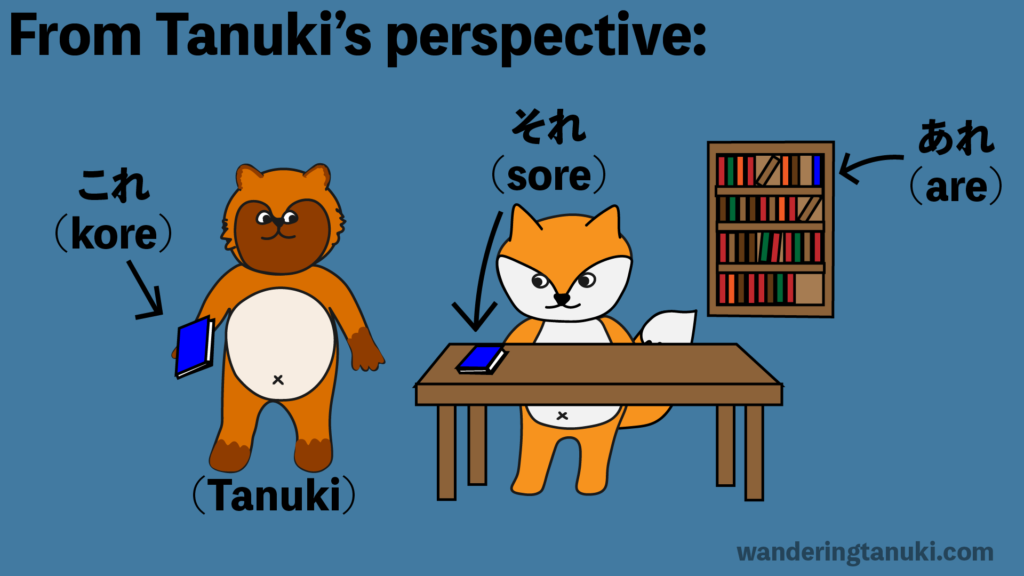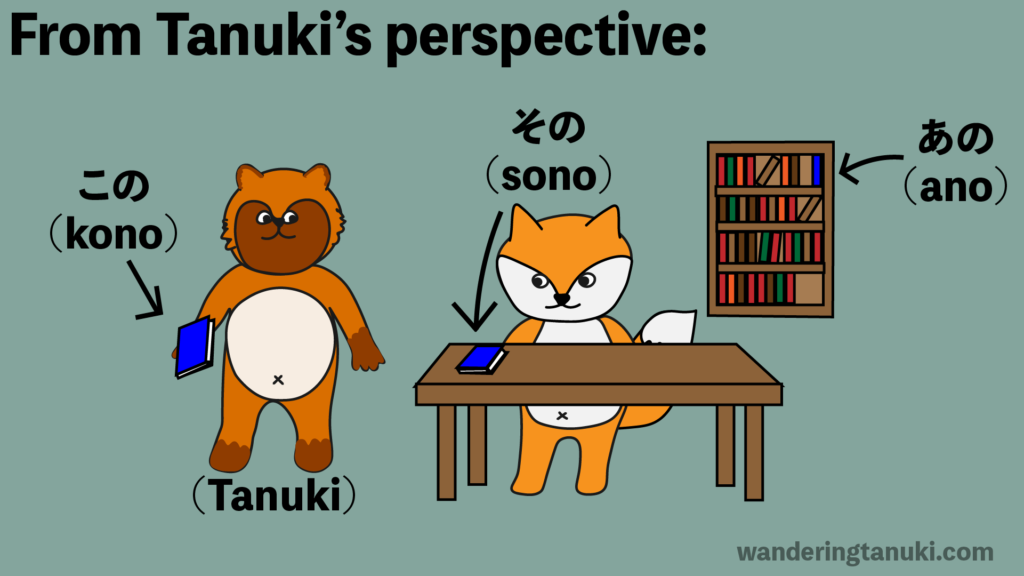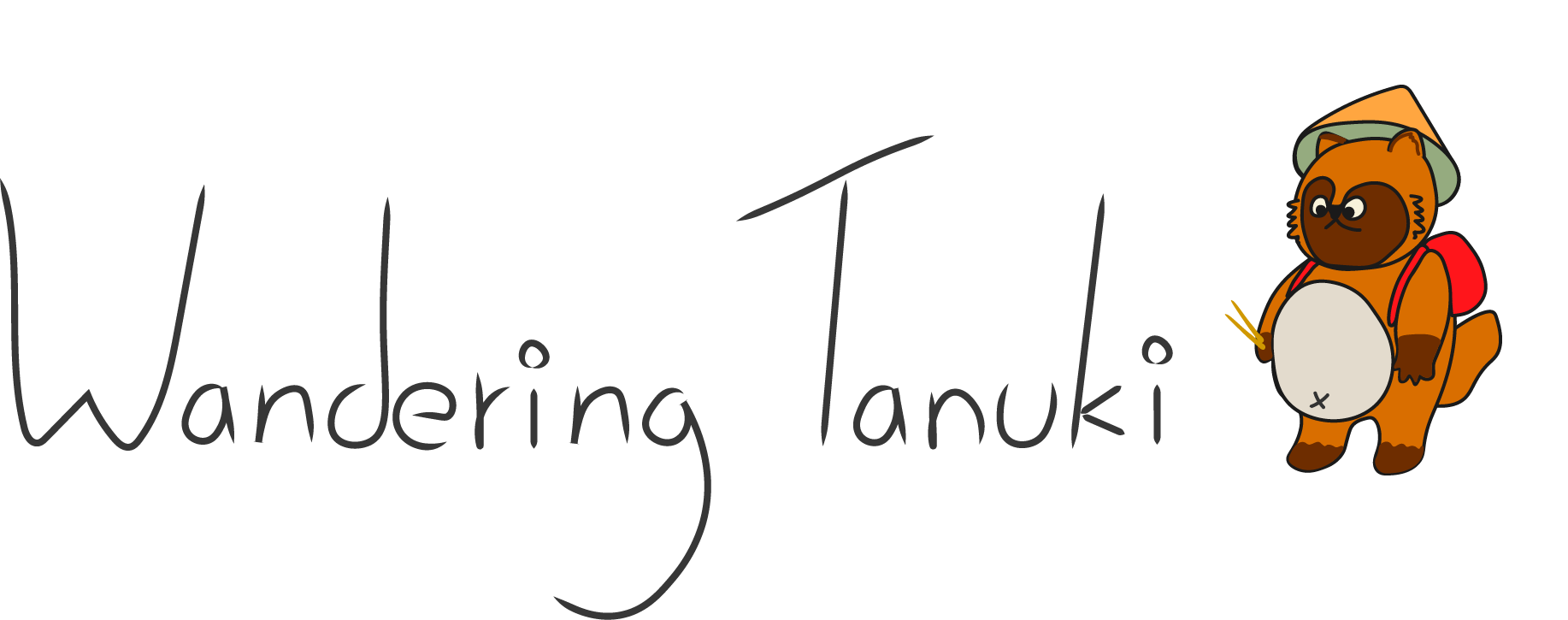“This”, “That”, and “Which” in Japanese
Knowing “This”, “That”, and “Which” in Japanese is really useful when you want to point things out or ask about a certain object. Some situations where you might need to use it are in a store or a restaurant. There are different words you’ll need to manage depending on how close an object is to you or the person you’re talking to!

Let’s begin!
Kore, Sore, Are, Dore, and Dochira:
The first set of words you’ll want to know are これ (kore),それ (sore), あれ (are), どれ (dore), and どちら(dochira). You should use these when you don’t specify what the object is. Note that dore and dochira means “which” instead of “this” or “that” but it can often be confused so it is added here (I’ll go over this later).
For example, if you need to say “how much is this?” you don’t include any nouns to specify the object. In this situation, we would use one of these words. Another example would be “This is 100 yen”. There is no noun after “this” to specify what the speaker is talking about.
In terms of grammatical structure, これ (kore),それ (sore), and あれ (are) are often used with は(wa). For ex, これは机ですか?(kore wa tsukue desuka?) – Is this a table?
However, どれ(dore) or どちら(dochira) cannot be used with は(wa), and should use が(ga) instead. For ex. どれが私のお弁当ですか? Dore ga watashi no obentou desuka? – Which one is my packed lunch?
Now we’ll look at what each of these words specifically means.

これ – Kore
When you use kore, you are referring to an object close to you.
For ex. これは私のおもちゃです。- kore wa watashi no omocha desu – This is my toy.
それ – Sore
This one is used when the object you’re referring to is close to the person you’re speaking to.
Ex. それは鈴木さんの本ですか?- sore wa suzuki san no omocha desuka? – Is that Mr. Suzuki’s book?
あれ – are
Use are, when the object is far from both you and the person you’re speaking to. Let’s take an example. Imagine that you are talking with someone and you see something far away in the clouds.
You could say: あれは飛行機ですか?- Are wa hikouki desuka? – Is that an airplane?
どれ – dore
This word means “which” and it is a question word. Although it doesn’t mean “this” or “that”, it can often be confused with the other words. With dore you also don’t specify any object. A key difference between the other words that I just shared is that you must not use は(wa). Instead use が(ga).
Ex. どれが好きですか?- dore ga suki desuka? – which one do you like?
どちら – dochira
Dochira is often confused by Japanese learners because it is different from dore. Dochira also means “which” but it can be a bit politer, and can only be used when asking about two items! Also, make sure to always use が(ga). For example, if you have two bags on the table you can ask:
どちらが好きですか? – dochira ga suki desuka? – Which do you like?(out of two options)
Kono, Sono, Ano, and Dono:
These next set of words work similarly as the previous ones, but you must always put a noun after them. This is useful when you want to specify what object you’re talking about.
Let’s take some examples:
Here is how a phrase would be if we don’t specify the object. The listener would infer what you’re talking about.
これは千円です。- Kore wa sen en desu – This is 1000 yen.
If you want to specify you’re talking about a bag that you have with you:
このかばんは千円です。- kono kaban wa sen en desu. – This bag is 1000 yen.
Now we’ll go over each word:

この – kono
This word is used with a noun to talk about an object that is close to you.
Ex. このかばんはいくらですか? – Kono kaban wa ikura desuka – How much is this bag?
その – sono
Use this word to talk about an object close to the person you’re talking to.
Ex. そのかばんは百円です。- sono kaban wa hyaku en desu. – that bag is 100 yen.
あの – ano
Ano is used when you’re talking about an object far from both you and the person you’re speaking to. Imagine you’re in a store and there is a bag that is far from both you and the shopkeeper.
You could say: あのかばんはいくらですか?- Ano kaban wa ikura desuka? – How much is that bag?
どの – dono
This is a question word that means “which”. Like the other words in this section you must put a noun after it. Also, make sure to always use が(ga) instead of は(wa).
Ex. どのかばんが好きですか?- dono kaban ga suki desuka? – which bag do you like?
Quiz Time:
Let’s go over various situations and try to create a phrase using these words: (answer key at the end of the quiz)
1.“How much is that?” (the object is close to the person you’re speaking to)
2.“Which book do you like?”
3.“This is my chair.” (The chair is close to you)
4.“Which do you like?” (out of more than 2 items/options)
5.“How much is that chair?” (the chair is close to the person you’re speaking to)
6.“That hat is 100 yen” (The hat is far away from both you and the person you’re speaking to)
7.“Is that a hat?” ( The hat is located far away from both you and the person you’re talking to)
8.“This book is 100 yen” (The book is located close to you)
9.“Which do you like?” (out of only 2 items/options)
Answer Key:
1.それはいくらですか?- Sore wa ikura desuka?
2.どの本が好きですか?- Dono hon ga suki desuka?
3.これは私の椅子です。- kore wa watashi no isu desu
4.どれが好きですか?- dore ga suki desuka?
5.その椅子はいくらですか?- Sono isu wa ikura desuka?
6. あの帽子は百円です。- Ano boushi wa hyaku en desu.
7.あれは帽子ですか?- Are wa boushi desuka?
8.この本は百円です。- Kono hon wa hyaku en desu.
9. どちらが好きですか?- dochira ga suki desuka?
I hope that this article on “this”, “that”, and “which” in Japanese was useful for learning these different words! If you need more articles on Japanese language learning, be sure to check out Wasei-eigo!: 25 Fake English words in Japanese or How to tell the time in Japanese
~ Tanuki






Thank you for your explanations, Tanuki! I have been learning some Japanese from language apps but these often do not explain grammatical rules. Your explanation of when to use the different words for “this”, “that” and “which” has really helped my understanding and my ability to compose simple sentences in Japanese. Arigato!
You’re very welcome! I’m glad my explanation helped you!